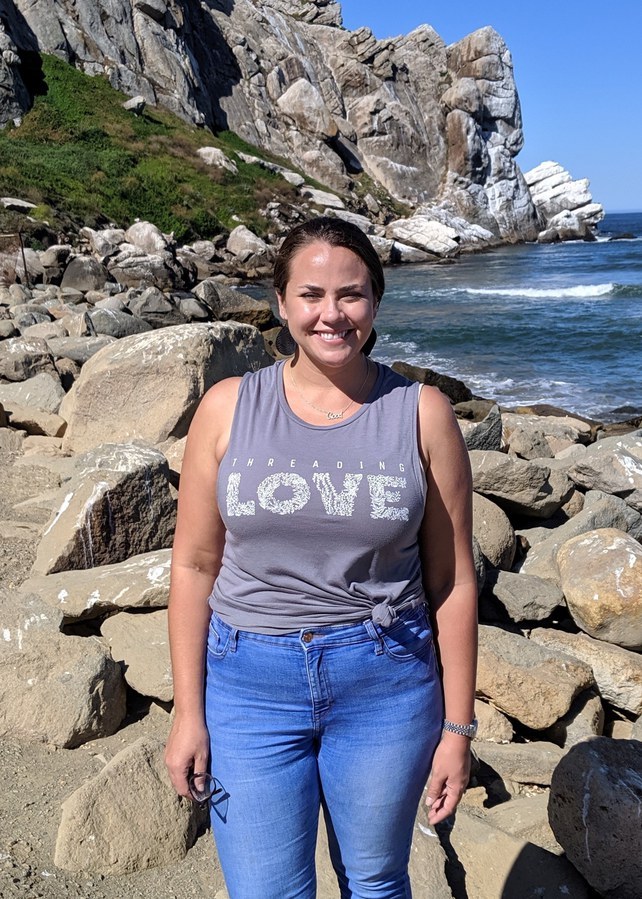Pennsylvania 4-H alumna Siobhan Fathel is currently an assistant teaching professor at Penn State in the Department of Agricultural and Biological Engineering.

We interviewed Fathel to learn how her experiences in 4-H shaped her life and lead her to pursue a career in science. Please enjoy our interview with Siobhan Fathel.
What were your 4-H projects?
Our club didn't fall into some of the categories I now think of when I hear about 4-H. We weren't a horse club or a swine club, but we had a wide variety of projects. I enjoyed cooking and sewing projects, but my main focus tended to be on the science projects! I distinctly remember our water sciences projects. We did kick nets and macro-invertebrate collection (they are small--and sometimes large--bugs that you find in freshwater streams that are strong indicators of water quality) and did nutrient tests at streams throughout the area.
What is/was your career, and how did 4-H help prepare you for this or contribute to this path?
I'm currently an assistant teaching professor at Penn State in the Department of Agricultural and Biological Engineering and I can draw a fairly straight line between my experiences in 4-H and what I chose to do for my career. In many ways, my first "field work" happened as part of my 4-H projects. I liked the scientific approach one of our 4-H leaders, Mary Jo Gibson (who also turned into my middle school science teacher) had. She was good at letting us come to our own conclusions, and she was good at getting us excited about the details of our projects. I went on to be an undergraduate student at Susquehanna University in Earth and Environmental Science, followed by my Masters and Ph.D. in Earth and Environmental Science and Environmental Engineering (respectively) at Vanderbilt University.
Many of my summers in 4-H were spent running around rural Pennsylvania on farms and exploring woods and streams. My job at Penn State is pretty similar. Now I spend about half my time teaching about science and the other half working with farmers as part of Penn State Extension. It feels like familiar territory.
What was your favorite part of 4-H, or fondest memory?
This is a fond memory, but it also makes me laugh at how horrified I was at about eleven years old. I really enjoyed entomology projects, until I had a mishap with freezing my specimens. I learned that it's pretty important to leave them in the freezer for the recommended time before pinning them to your collection boards. Short freezing times lead to stunned rather than deceased bugs. Lesson learned.
Outside of that, I enjoyed the community events most. We planted and cared for a butterfly garden at a local state park, but it was cool to see results (and updates) in person.
What does 4-H look like for you now?
I'm not currently involved in 4-H, but my niece is a part of my old club in Hobbie 4-H club! Which is pretty darn cool.
What advice do you have for current/future 4-H members? What was your biggest take-away?
In many ways 4-H prepares you for future jobs and projects. You normally work on a project for a period of time (for me it was always over the summer) and then present at a round up or a fair. This mimics many of the things I do at work or in college. We always did a round up where folks asked questions about your projects--this was daunting, but SO good for me.

